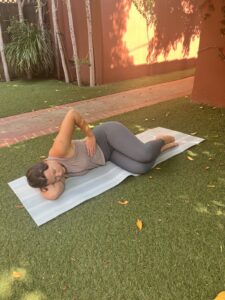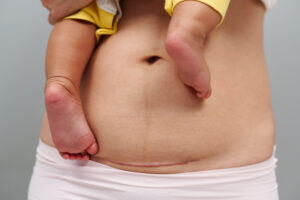The Femina Physical Therapy Blog
Featuring original articles by our staff about current events and trends
Explore our insightful blog articles on pelvic health, where we delve into essential topics that empower and educate. From understanding pelvic floor disorders to strategies for conquering infertility, our content is designed for those seeking knowledge and support. We discuss the latest research, expert advice, and practical tips to enhance your well-being and foster a deeper connection to your body.

Categories
All Blog Posts
Restorative 20 Minute Home Yoga Practice For Chronic Pelvic Pain
Yoga Practice For Chronic Pelvic Pain Can Be a Very...
Read MoreUnderstanding Relaxin: Why It Doesn’t Cause Pain in Pregnancy
Pregnancy is a time of significant physical and hormonal changes,...
Read MorePostpartum Sexuality & Mood Changes in Women with Pelvic Girdle Pain
Does my pelvic girdle pain have anything to do with...
Read MoreLightning Crotch in Pregnancy: How You Can Start Recovering from SPD
What is symphysis pubis dysfunction (Lightning Crotch)? Symphysis pubis dysfunction...
Read MoreWhy a Multidisciplinary Team is Best for Treatment of Bloating and Abdominal Distension
Bloating and Abdominal Distension Often Benefit Greatly from Multidisciplinary Treatment Bloating,...
Read MoreRunning Mechanics and Pelvic Floor Health: The Impact of Footwear
Did You Know That Proper Footwear Can Improve Your Running...
Read MoreVulvovaginal Moisturizers: Who Needs One & Choosing the Right One
Choosing the Right Vulvovaginal Moisturizer Assuming you need one, make...
Read MoreTreating Bloating and Abdominal Distension: a Multi-Disciplinary Team
Why a Multi-Disciplinary Team is Best for Treating Bloating and...
Read MoreTherapeutic Breast Massage in Lactation (TBML)
Therapeutic Breast Massage in Lactation Can Help Make Breastfeeding Less...
Read MoreCervical & Pelvic Health Month: How Physical Therapy Supports Pain Relief and Function
Cervical and pelvic health are crucial to overall well-being, yet...
Read MoreUnderstanding Clogged Milk Ducts and Non-Infectious Mastitis: A Comprehensive Guide
Breastfeeding is a meaningful and rewarding experience, but it...
Read MoreSoftwave (Shockwave) Therapy
Utilizing Softwave Shockwave Therapy in Rehabilitation for Women’s Health and...
Read MoreTreatment Options for Postpartum Pelvic Pain Therapy in Los Angeles, CA
Bringing a baby into the world is an incredible physical...
Read More




















